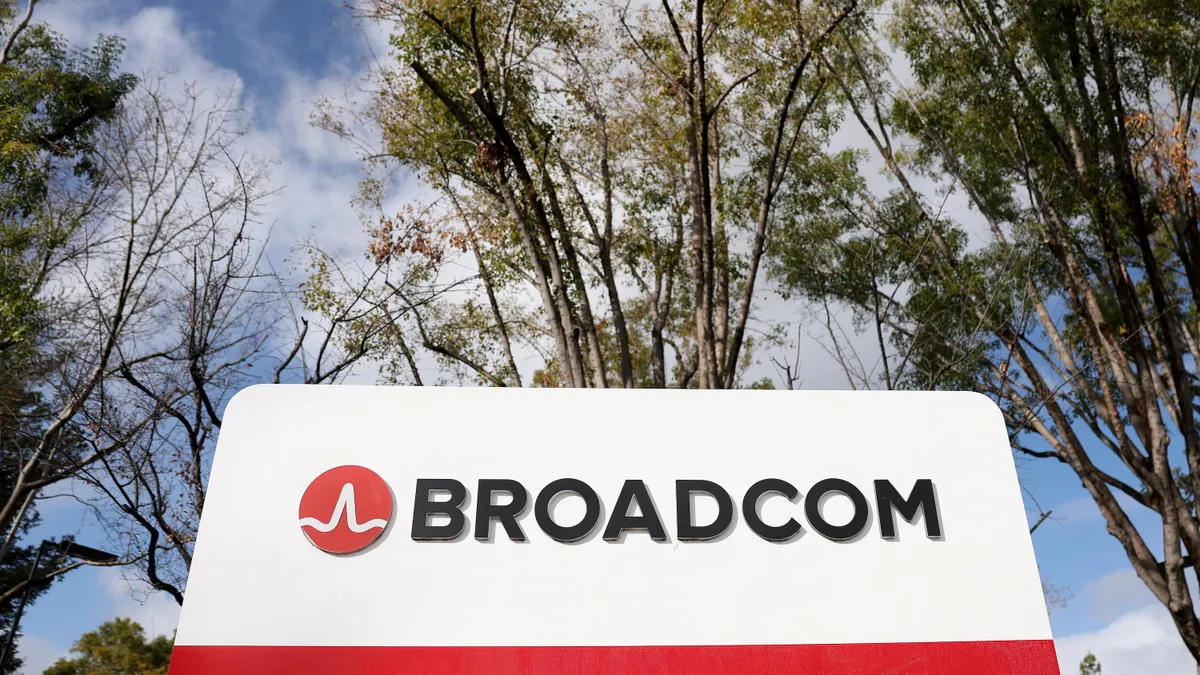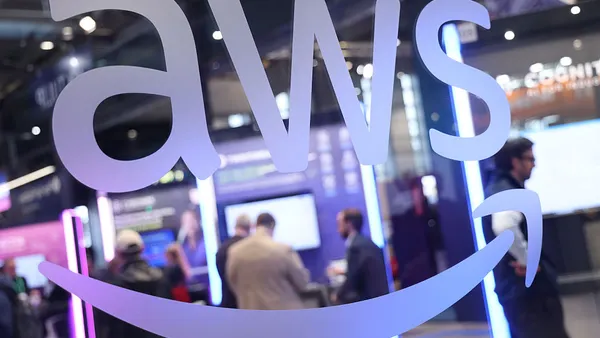Dive Brief:
- Broadcom initiated the second phase of its VMware consolidation two years after acquiring the virtualization software provider, CEO Hock Tan said Thursday, during a Q3 2025 earnings call. More than 90% of VMware’s largest 10,000 customers have shifted from perpetual licenses to the subscription-based VMware Cloud Foundation private cloud bundle, according to Tan.
- “Here comes the other part of our work, which is to take these 10,000 customers, or a big chunk of them who have bought the vision of a private cloud on-prem, and work with them to enable them to deploy it and operate it successfully on their infrastructure and on-prem,” Tan said. “That's the hard work over the next two years that we see happening.”
- The tech giant saw revenue increase 22% year over year to $16 billion, driven by surging AI semiconductor sales and steady growth in VMware, Tan said. Broadcom’s infrastructure software segment, which includes VMware, produced $6.8 billion in revenues, up 17% year over year, accounting for 43% of Q3 revenue, CFO and Chief Accounting Officer Kirsten Spears said.
Dive Insight:
VMware’s early days under Broadcom brought radical change to an expansive and nearly ubiquitous enterprise software suite. Customers grumbled as the chipmaker packaged thousands of VMware offerings into several large bundles led by the VCF 9.0 private cloud platform, which became generally available in June.
“After two years of engineering development by over 5,000 developers, we delivered on our promise,” Tan said Thursday. “This provides the real alternative to public cloud.”
Broadcom also revamped VMware’s existing technology partner program to prioritize converting large enterprise customers to private cloud subscribers. Last month, the company reeled in Walmart, which will leverage VCF to streamline infrastructure, software and security across its globally distributed operations.
“We are commoditizing the underlying hardware in the data center, commoditizing servers, commoditizing storage, commoditizing even networking,” said Tan. “And by commoditizing, we're actually reducing the cost of investments in hardware in data centers for enterprises.”
VMware cost spikes were a major point of contention during the Broadcom transition. AT&T said its VMware bill was set to increase by 1,050% in a lawsuit that was settled in November.
Helping enterprise customers realize returns on their VCF investments is the focus of phase two, Tan said. “On top of that, we will start selling advanced services, security, disaster recovery, even AI,” he added.
VMware has 300,000 customers, according to Tan. The top 10,000 are finding value in the bundled private cloud platform. For the next level of customer, the jury is still out.
“It might not be something that they can take on,” Tan said. “This is an area we’re still learning, and it will be interesting to see.”
On the chips and hardware side of the business, Broadcom has all but forsaken the smaller market segments to focus on a limited number of hyperscale customers, according to Tan.
The company has existing relationships with three of the seven largest cloud and AI service providers and recently inked a $10 billion deal with a fourth, Tan said. “The addition of a fourth customer with immediate and fairly substantial demand … changes our thinking of what ’26 would be starting to look like,” he said, adding that continued strength in AI and VMware should drive 24% revenue growth in Q4.














